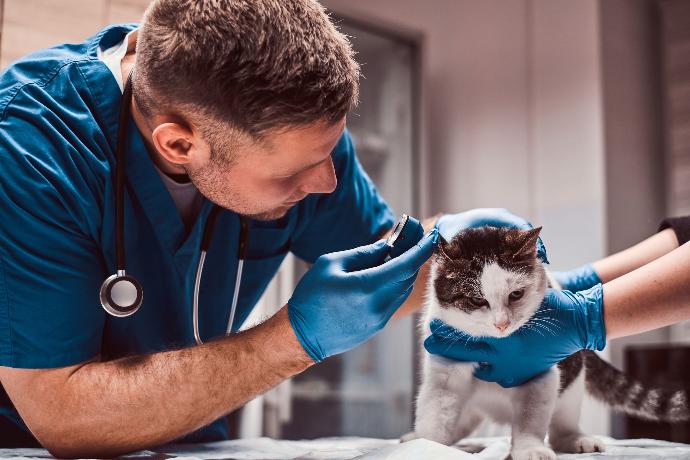The veterinary industry stands on the brink of significant transformation, influenced by an array of dynamic trends. The expanding scope of telemedicine, the growing integration of artificial intelligence (AI), and the shifts in market consolidation are just the tip of the iceberg. Alongside these, the rise of mobile veterinary services, enhanced roles and recognition of veterinary technicians, the migration towards cloud-based practice management systems, and the evolving landscape of client preferences and Telehealth policies are collectively redefining the future of veterinary care. This article delves into these key trends, offering insights into how they're poised to reshape veterinary practices in the year ahead and beyond.
Cloud-Based Practice Management
Over the past decade, cloud-based software solutions have increasingly become the backbone of veterinary practice management. The adoption of cloud-based Practice Information Management Systems (PIMS) is projected to reach an 84% adoption rate by 2030.

This shift is largely driven by veterinary businesses seeking to move away from the burdens of maintaining on-site hardware and complex IT infrastructures. One of the key factors propelling this change is corporate consolidation within the veterinary sector. As larger groups recognize the limitations imposed by disjointed data and disparate software systems, there's a growing emphasis on standardizing cloud-based PIMS. This standardization is aimed at enhancing operational consistency, data integration, and overall efficiency across multiple practice locations.
For vet clinics, the all-in-one PIMS solutions offer extensive integrations and functionalities - from online booking and automated reminders to telemedicine capabilities - effectively eliminating the need for additional software acquisitions.
The transition to cloud-based systems is not just a technical upgrade; it significantly enhances the client experience. New software features can expand the range of services offered by veterinary practices, including advanced communication tools like text messaging, pet parent apps, and even AI-driven chatbots. This boosts client engagement and improves the overall quality of patient care.
Furthermore, the move towards cloud-based systems opens up opportunities for remote work within the veterinary field. This aligns with the aspirations of many veterinary professionals who seek more flexible working arrangements.

Telemedicine's Growing Influence
The debate around eVCPR (electronic Veterinary-Client-Patient Relationship) has seen significant progress in 2023. States like Arizona and California have passed legislation allowing veterinarians to establish VCPR remotely. This shift signals a broader acceptance of telemedicine in veterinary care, aligning with the growing client demand for remote care options. As more states adopt similar policies, 2024 is expected to be a pivotal year for telemedicine in veterinary practices.
Client Preference for Telemedicine
Clients are increasingly favoring the convenience of telemedicine. A survey indicates that 69% of pet owners are interested in remote care options. With advancements in digital communication tools, veterinary practices have an opportunity to expand their reach, offering care that's more accessible and aligns with modern client expectations.

The Rise of Artificial Intelligence
Artificial Intelligence (AI) is rapidly transforming the field of veterinary medicine, moving from a novel concept to an essential tool in practice management and patient care. Both emerging startups and established companies are at the forefront of this revolution, introducing AI-driven innovations that encompass a wide array of veterinary applications. These range from practice information management systems (PIMS) with AI integration to voice-to-text transcriptions, advanced data analytics, diagnostic imaging enhancements, and smart wearable technologies.
AI's integration into veterinary workflows offers numerous benefits. It can simplify tasks such as patient prescreening, triage, treatment planning, and follow-up care. This technology not only streamlines veterinary processes but also significantly reduces the administrative load on practitioners. However, as AI gains traction, it also invites a debate over the need for regulatory frameworks similar to those in human healthcare, to ensure the safe and ethical use of AI in animal health.
A critical factor in the successful implementation of AI in veterinary medicine is the customization of technology to meet the profession's unique requirements. Effective AI deployment in veterinary settings demands extensive datasets for training machine-learning algorithms. Presently, these datasets predominantly rely on general AI models. To fully harness AI's potential in improving veterinary care, it's imperative to have access to verified veterinary medical data and to involve veterinary professionals actively in refining these algorithms.
The path ahead for AI in veterinary medicine requires more definition and clarity, especially regarding its regulatory aspects. However, one thing is certain: the impact of AI on the industry will be significant. As AI technologies evolve to include more comprehensive guidelines and adapt to the specific demands of veterinary medicine, they promise to revolutionize veterinary practice operations and patient care significantly.
Access to Care Initiatives
Alongside telemedicine, there's a push to enhance overall access to veterinary care. Mobile veterinary services, for instance, reported a significant revenue increase in 2022. Practices are diversifying services and embracing new models to meet the needs of underserved communities. The rise of mobile services caters not only to the convenience of clients but also addresses logistical challenges in accessing traditional veterinary care.
Utilization of Veterinary Technicians
The veterinary industry is recognizing the untapped potential of veterinary technicians. Recent guidelines by the AAHA and regulatory changes in states like Arkansas and California are empowering technicians, expanding their roles to enhance patient care and operational efficiency.

The Consolidation Rollercoaster
Recent years have seen the veterinary consolidation market experience a fever pitch of activity. This period was marked by aggressive expansion, with consolidators acquiring not just individual practices but entire groups, pushing corporatization up to 25% and inflating practice valuations to extraordinary heights. However, 2023 emerged as a watershed year, witnessing the bursting of this consolidation bubble. Valuations that once skyrocketed to 18x fell dramatically to 8x, signaling the end of the lucrative arbitrage strategy that had driven this rapid expansion.
This downturn was fueled by a combination of factors: delayed IPOs due to regulatory challenges, rising interest rates, spiraling inflation, and the struggle of some major platforms to secure necessary recapitalization. These elements made private equity firms increasingly hesitant to invest, leading to a general decline in valuations and putting pressure on consolidators burdened with large corporate structures and costly acquisitions.
As the market shows signs of recovery in 2024, the focus shifts to innovative models like de-novo practices. Consolidators are adapting to new realities, seeking sustainable growth strategies that balance business objectives with the core mission of patient care.
As we navigate these dynamic changes, AIV Vet remains a steadfast partner in veterinary equipment support. With over three decades of experience, our commitment to quality and innovation is unwavering. We specialize in repairing and maintaining infusion pumps, offering both new and patient-ready used pumps. Our products, including the IVetMATE IV fluid warmer and PowerMATE® relocation power solutions, are designed to enhance the efficiency and effectiveness of your practice.
Our ISO 13485:2016 certification is a testament to our dedication to quality control and risk management. With AIV Vet, you can trust that your practice is equipped with reliable, cost-effective solutions that enable you to focus on what matters most – providing excellent care to your patients.🩺🐶🏥🐾
Source:
Veterinary industry trends to watch in 2024 (Part I). October 26, 2023 by DVM360.
Veterinary industry trends to watch in 2024 (Part II). October 27, 2023 by DVM360.